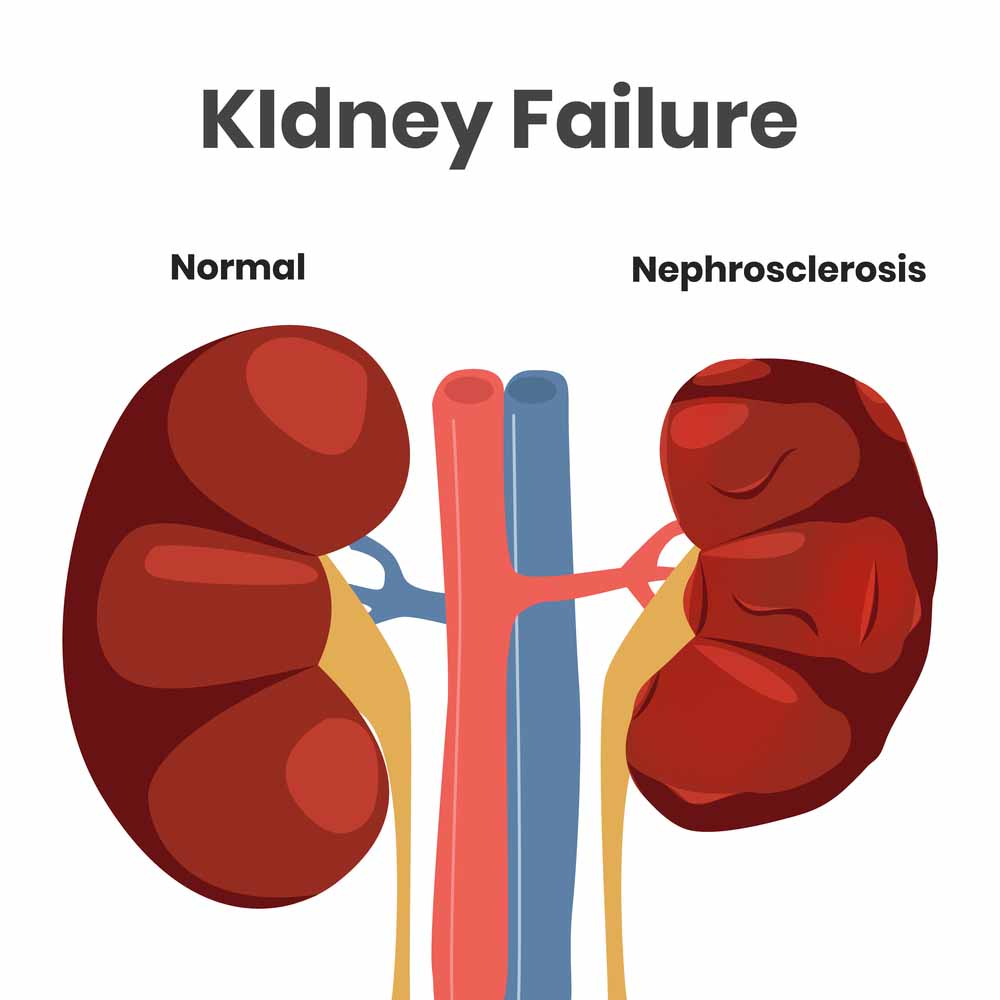A significant portion of the population is living with the chronic condition of kidney disease, but they do not acknowledge it until the condition worsens and turns into kidney failure. Certain factors contribute to the development of kidney failure in patients, and the process of developing kidney failure is usually gradual. The symptoms of kidney failure are traditionally hard to appear as the damage to the kidneys is happening very silently. However, sometimes the people ignore their physical symptoms and think of these symptoms an attribution of other health conditions. The symptoms of kidney failure are common to many other health disorders like shortness of breath, feeling fatigued, trouble having a sound sleep, swelling of the limbs and other body parts.

The signs and symptoms of kidney failure appear very late in the patients as they get themselves in a pretty bad situation. Usually, when the kidney function alters in the early stages of kidney failure, there are no visible and apparent symptoms that might help in the diagnosis of the disease. But with the progression of the disease, the function of kidneys reduces to a very minimum level and the person starts experiencing the functional abnormalities like the changes in urine production, severe swelling, and excess protein in the urine. According to many healthcare professionals, the percentage of people knowing that they have kidney failure and chronic kidney disease is only 10% of the whole population.
The only possible way to identify the correct symptoms of kidney failure is the regular screening of the people who suffer from diabetes, hypertension or high blood pressure, or if their age is more than 60 years. The people who have a family history of kidney failures even in their extended relatives must go for the annual screening because they are at risk for developing kidney failure. Moreover, in some cases of kidney failure, the patients do not experience any sign and symptoms of the disease. The early stage of kidney failure is when you want to properly diagnose the condition of the patient to provide them with the best possible treatment. There are more chances of betterment when the doctors diagnose the patients with kidney failure in its earlier stages. While it is challenging to identify the symptoms of the patients suffering from the primary stage of kidney failure as the signs are more subtle.
However, the following are the possible signs and symptoms of kidney failure:
Reduction in urine output

Reduction in the amount of urine output is one of the most obvious symptoms of kidney failure in many patients. The decline of the urine output depicts the abnormality or dysfunction of the kidneys. Although there might be many reasons behind the decreasing amount of urine production like dehydration, some urinary tract infection, certain medications, or urinary tract obstruction. But in the situation of acute kidney failure patients, there is urine production of only almost 16 ounces of urine per day which is way less than the average urine production of 34 to 50 ounces per day. The condition of reduced urine production is medically known as “uremia”. The uremia is a serious indicator for healthcare professionals to treat the condition because untreated uremia leads to severe health problems like seizures and coma.
Due to severe renal damage, the primary function of kidneys to filter the waste products and toxins from the blood and produce urine remains only 20% or sometimes even lesser in the chronic conditions of the kidney disorder. Moreover, when the filtration of the blood starts affecting, there are more chances of abnormalities in other body functions. The lesser production of urine indicates that the kidneys are in the impaired condition to produce the average amount of urine for excretion. Whenever there is a reduction in the urine output, there is an accumulation of the waste products in the body that impart deleterious health hazards and also cause fluid retention which ultimately leads towards the development of fluid retention in the body.

